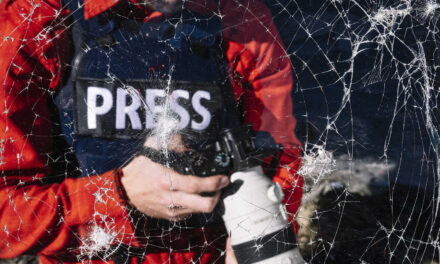Rodney Pinder is the Director of The International News Safety Institute (INSI) ,
Written Commentary for the Political Aspects Study of the Initiative on Impunity and the Rule of Law, 23/5/2011, (Highlighted passage is cited in the Political Aspects Study)
On the impact of UN Security Council Resolution of 2006 on the risks of injuries or deaths among media workers in conflict zones; and INSI’s Recommendation for further measures to make the Resolution more effective in practice: There is no obvious evidence of any practical impact of UNSC Resolution 1738. I have received no feedback about positive effects of 1738.
The numbers don’t tell us much: 511 journalists and other news media staff killed in the four years between 2007 and 2010, against 594 killed in the five years between 2002 and 2006. The pre-2006 figures were boosted by Iraq War, of course.
The figures on impunity, another clause in 1738, have also remained unchanged for years – no-one is brought to justice in between 8 and 9 out of every ten murders of journalists around the world.
So when you strip away the Iraq War, the situation remains serious. The great majority of journalists killed are not in conflict zones – and this was, and remains, our main problem with 1738. I suspect we would not have got it through unless it was restricted to conflict areas. The countries where most journalists are murdered with impunity can argue they have no wars going on. Hence we only ever regarded 1738 as a declaration of principle by the world’s highest political body – we did not expect much impact on the global toll of casualties
The only military rulebook that has been changed to take account of journalist safety is the British “Green Book”, but that was a result of an approach by INSI and its members, not of Resolution 1738 itself. INSI tried to get the Green Book provisions adopted by the Pentagon and the IDF [Israeli Defense Forces], but with no success.
We do however seek steps for the UN to hold its 1738 signatories to account: the UN Secretary-General is required to report back to the Security Council on journalist casualties and impunity (we provide him withA the data), but as far as I know there is no punch, no finger-pointing, in his reports. One only needs to attend meetings of the IPDC [International Programme for the Development of Communication, a UNESCO body] to realise why. At the last one, in 2010, several countries including North Korea, China, Cuba and Sri Lanka objected loudly to being “lectured” by organisations like INSI and RSF [Reporters Sans Frontieres].
The UN Inter-agency meeting may help, but INSI cannot have high expectations, in view of past experience.
Hence INSI’s focus on practical safety training and safety information exchange. Journalists have no one to help them except themselves.
Posted: 3 June 2011




